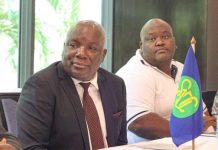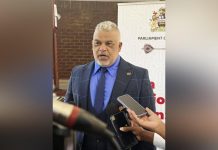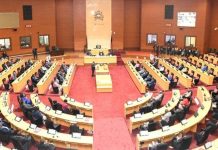Africa-Press – Malawi. The net is tightening. Police have arrested six more suspects linked to last year’s violent political attacks and disruption of demonstrations in Lilongwe — bringing the total number of suspects to 15 in what authorities describe as a major breakthrough against political thuggery.
Among the latest arrests is the alleged ringleader, Bruno Munlo Makina, 37, from Balaka, who police believe coordinated a panga-wielding gang that unleashed terror on protesters and activists. Makina was arrested in Lilongwe alongside Erick Phakamisa, 40, of Dedza, and Hanif Banda, 23, of Kasungu.
Three others — Rahim Jonathan, 52, Alphonso Chiphwanya, 49, and Esaya Bwanali, 35 — were rounded up in Dowa on October 30.
National Police Deputy Spokesperson Alfred Chimthere confirmed the arrests, saying the suspects will appear in court today.
“We have arrested the suspected ringleader of the gang that was behind violent attacks in Lilongwe and surrounding areas. More arrests are expected as investigations continue,” he said.
The development follows the re-arrest of nine other suspects who had previously been granted bail but are now facing fresh charges.
The re-arrested include Alfred Dalla Kadula, Joseph Tilibe Gideon, Lameck Mandowa, Lester Hanieck Aaron Kanjunga, Howard Hamuza, Mabvuto Njuchi, Davie Malamula, Issa Saidi, and Rodgers Fakiri — a network of suspects drawn from multiple districts across the country.
The 15 face a litany of serious charges, including acts intended to cause grievous harm, robbery, arson, and demanding property with intent to steal.
They are accused of violently attacking human rights activist Sylvester Namiwa and others, burning vehicles, and stealing property during what was meant to be a peaceful demonstration against the Malawi Electoral Commission and other State agencies.
Defence lawyer Christopher Kambalame has, however, slammed the police for what he called “piecemeal arrests” and abuse of authority.
“Why arrest people in batches for offences allegedly committed months ago? The police already have the case records. This approach is unfair, illegal, and intended to punish the accused with prolonged detentions before trial,” he said.
The arrests mark an intensifying push by law enforcement to dismantle what insiders describe as a politically connected web of violence that thrived under the previous administration — where intimidation, blood, and fear became tools of silencing dissent.
As the suspects head back to court, one question lingers: Will justice finally prevail, or will Malawi’s cycle of political violence continue under new colours and old habits?
For More News And Analysis About Malawi Follow Africa-Press






